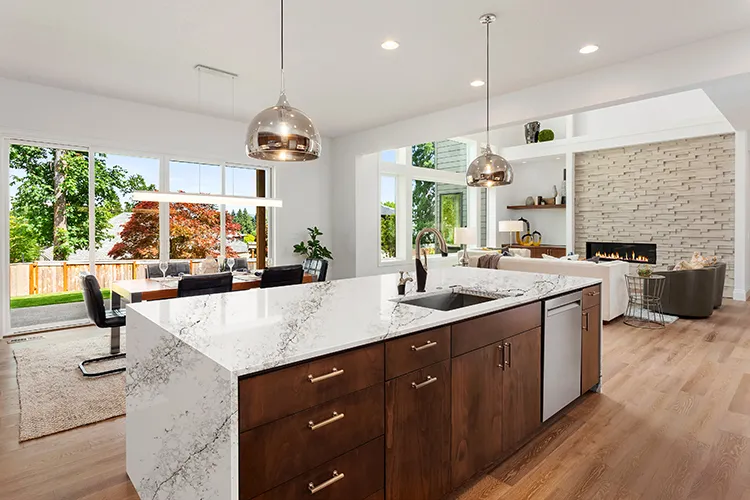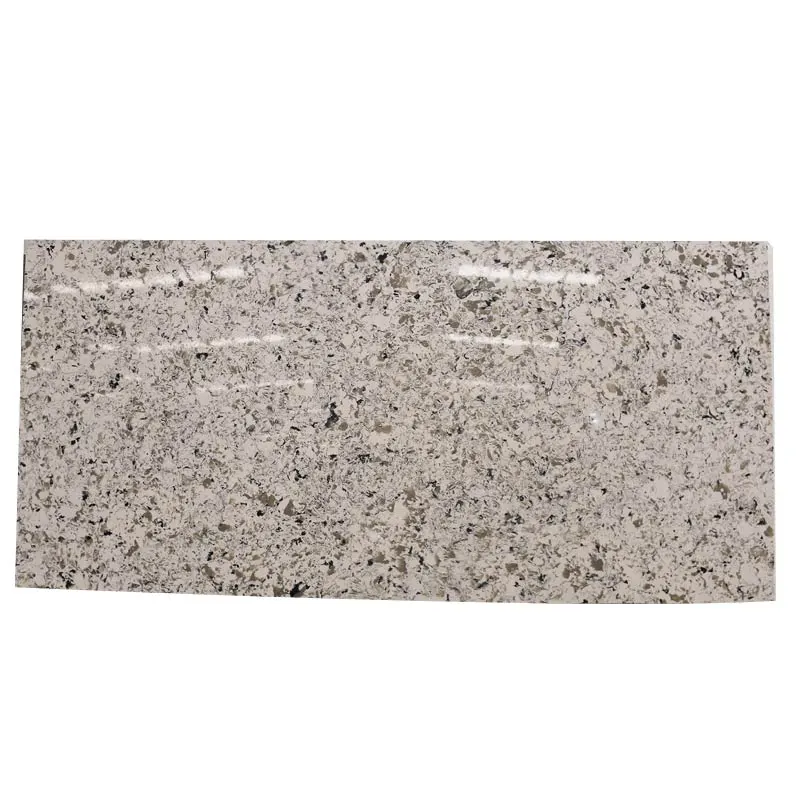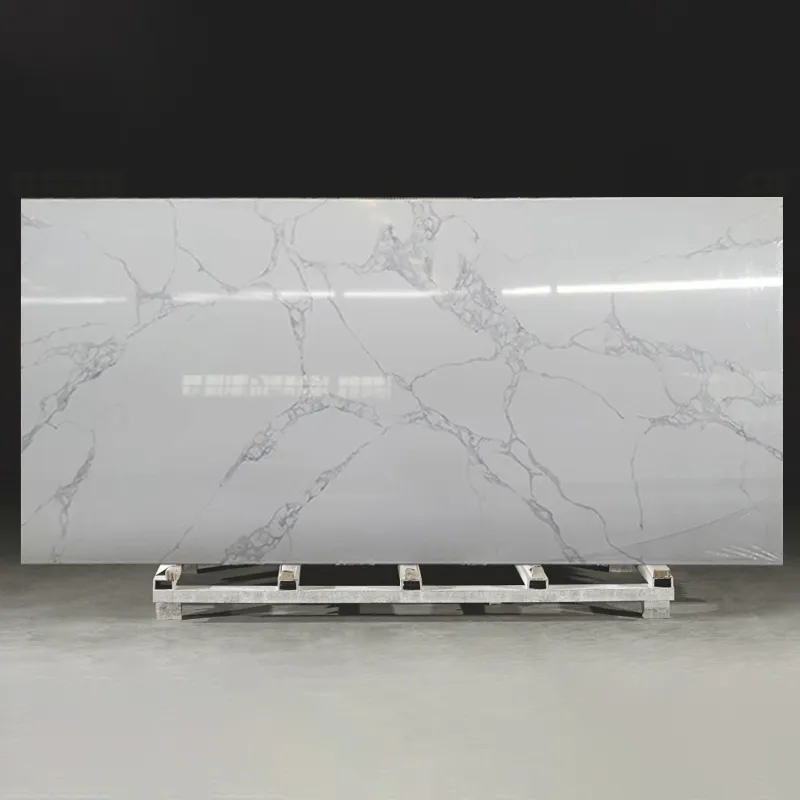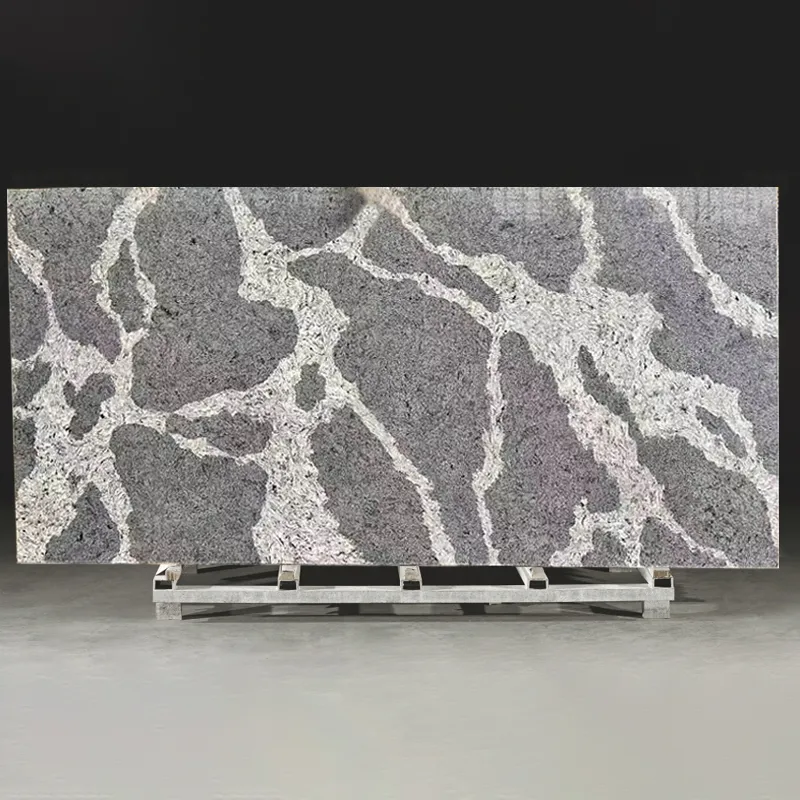Kitchen countertops are one of the most critical components of home decoration. They must not only bear various daily operations, but also have good durability, stain resistance and aesthetics. Among the many optional materials, quartz worktops and granite countertops are the two most popular choices. However, the stain resistance of these two countertops, especially whether they are easy to stain, often becomes the focus of consumers.
This article will analyze in detail the material characteristics, stain resistance, staining risks and how to effectively avoid staining of quartz countertops and granite countertops to help consumers understand the advantages and disadvantages of the two in terms of anti-pollution and make a more wise choice.

What are the characteristics of quartz countertops and granite countertops?
Before discussing the staining problem of the two, it is very important to first understand the material characteristics of quartz worktops and granite countertops, because their chemical structure and surface characteristics directly determine their anti-pollution ability.
Material characteristics of quartz countertops
Quartz worktops are an engineered stone composed of approximately 90%-93% natural quartz and 7%-10% resins, pigments and other additives. Quartz is a very hard mineral, second only to diamond in natural hardness, which makes quartz worktops very good in terms of scratch resistance and hardness.
Quartz countertops are non-porous materials with a very dense and smooth surface. This means that liquids, oils and food residues are not easy to penetrate the surface of quartz stone, so quartz worktops have very good stain resistance. The surface of quartz countertops rarely requires additional sealing treatment, and it is this non-porous structure that makes it better than many natural stones in terms of stain resistance.
Material characteristics of granite countertops
Granite is a natural stone composed of mineral components such as quartz, feldspar, and mica. Unlike quartz worktops, granite is a naturally porous material. Although its hardness is also quite high, its porous structure makes it easy to absorb liquids or stains.
During the processing process, granite usually needs to be sealed to prevent liquids and stains from penetrating. However, over time and with the increase in frequency of use, this sealing layer may wear out and need to be resealed regularly. Unsealed or ineffectively sealed granite surfaces are prone to absorbing darker liquids such as red wine, coffee or spices, which increases the risk of staining.

Quartz countertops vs. granite countertops: Which is the best?
Stain resistance is a key indicator for determining whether a countertop is prone to staining. The stain resistance of quartz and granite countertops is mainly affected by factors such as their porosity, sealing treatment, surface hardness and chemical corrosion resistance.
Quartz countertops have a significant advantage in stain resistance due to their non-porous structure. The resin filler on the quartz surface effectively seals the tiny pores and prevents liquid penetration. Therefore, common kitchen liquids such as coffee, tea, red wine, grease, etc. are unlikely to cause staining problems on quartz countertops.
In addition, quartz worktops do not need to be sealed regularly like granite. Its stain resistance is inherent, rather than relying on external sealants. Therefore, even after long-term use, quartz countertops can still maintain good stain resistance, with simple daily cleaning.
Stain resistance of granite countertops
The stain resistance of granite countertops is more complex and depends on whether they have been effectively sealed. Unsealed granite countertops are prone to absorbing various liquids due to their porosity, which creates a risk of staining. Oil, acidic substances and colored liquids can penetrate into the stone through tiny pores, resulting in stains that are difficult to remove.
Even if the granite is sealed, the sealing layer will gradually wear over time and daily use, making the granite countertop less stain-resistant. Therefore, granite countertops need to be resealed regularly to ensure that they maintain good stain resistance. Without regular maintenance, the risk of granite countertops staining will increase significantly.
Which is more likely to stain, quartz countertops or granite?
After understanding the stain resistance of the two materials, we further analyze their respective staining risks. Staining is usually caused by colored liquids or food residues penetrating into the surface or inside the countertop. Therefore, the porosity of the material is the key to determining the risk of staining.
Staining risk of quartz countertops
Due to the non-porous structure of quartz worktops, it has a relatively low risk of staining. Even if strong staining substances such as coffee, red wine, and ketchup are spilled on the countertop, as long as they are cleaned up in time, they usually will not cause staining problems.
However, quartz worktops are not completely immune to staining. Some chemical cleaners or excessive exposure to ultraviolet rays may cause aging or discoloration of the surface resin, resulting in slight staining of the quartz countertop. Therefore, in daily use, avoid using corrosive cleaners such as strong acids and alkalis, and avoid exposing the quartz countertop to direct sunlight for a long time, which can effectively prolong its anti-pollution performance.
Risk of staining on granite countertops
In contrast, granite countertops have a higher risk of staining, especially when they are not sealed or the sealing layer has failed. Due to its porous natural structure, granite easily absorbs liquids, especially colored liquids. Once these liquids penetrate the stone, they may leave permanent stains on the countertop.
For example, once colored liquids such as red wine, coffee, orange juice, and soy sauce are spilled on granite countertops that are not sealed or the sealing layer has worn off, they may be absorbed in a short time, resulting in stains that are difficult to remove. Therefore, daily maintenance of granite countertops is particularly important, and regular sealing can greatly reduce the risk of staining.

How to effectively prevent quartz countertops and granite countertops from staining?
Although quartz countertops and granite countertops have their own advantages and disadvantages, the risk of staining can be effectively reduced through proper daily maintenance and cleaning. Here are some practical suggestions to prevent staining:
Clean stains in time
Whether it is a quartz worktop or a granite countertop, the most effective way to prevent staining is to clean stains in time. Especially colored liquids, such as coffee, tea, red wine, etc., should be wiped clean with a damp cloth immediately after spilling to prevent the liquid from penetrating or adhering to the surface of the countertop.
Use mild detergents
For daily cleaning, it is recommended to use mild detergents and avoid strong acid or strong alkaline chemicals. Although quartz worktops are resistant to chemical corrosion, overly strong detergents may damage their surface resin layer, causing the countertop to lose its gloss and increase the risk of staining. For granite countertops, strong acid or alkaline detergents may also damage the sealing layer, reducing its anti-fouling performance.
Regular maintenance
Quartz countertops require little additional maintenance due to their non-porous structure. However, granite countertops require regular sealing to maintain their stain resistance. It is generally recommended to seal once a year or every two years depending on usage to ensure that the protective layer on the surface is effective.
Avoid long-term exposure to strong sunlight
Prolonged exposure to ultraviolet rays may cause slight discoloration or aging of the surface of quartz countertops. Therefore, avoid leaving quartz countertops in direct sunlight for a long time, especially in kitchen areas near windows or outdoors.
Use protective mats or trays
When preparing food or placing colored liquids, using protective mats or trays can effectively reduce the chance of direct contact between liquids and countertops, further reducing the possibility of staining.

Use scenarios of quartz countertops and granite countertops: How to choose?
After understanding the performance of quartz worktops and granite countertops in stain resistance, different usage needs and scenarios can help consumers better choose the countertop material that suits them.
Applicable scenarios of quartz countertops
Quartz countertops are suitable for family kitchens that pursue convenience and low maintenance due to their excellent stain resistance, durability and maintenance-free characteristics. If the kitchen is frequently used and needs to handle a lot of colored foods or liquids, quartz countertops are an ideal choice because they are not easy to stain and are simple to clean.
In addition, since quartz worktops do not need to be sealed regularly, they are also very suitable for users who do not want to spend too much time on daily maintenance.
Granite countertops are suitable for scenarios
Granite countertops have attracted many consumers with their unique natural texture and high hardness. For those who pay more attention to natural beauty and unique textures, granite countertops are a good choice. However, the porous structure of granite countertops and the need for regular sealing mean that it is more suitable for users who are willing to invest time in regular maintenance.
If the kitchen is used relatively infrequently, or the family is willing to work hard on sealing and maintenance, granite countertops can still provide excellent durability and beauty.

